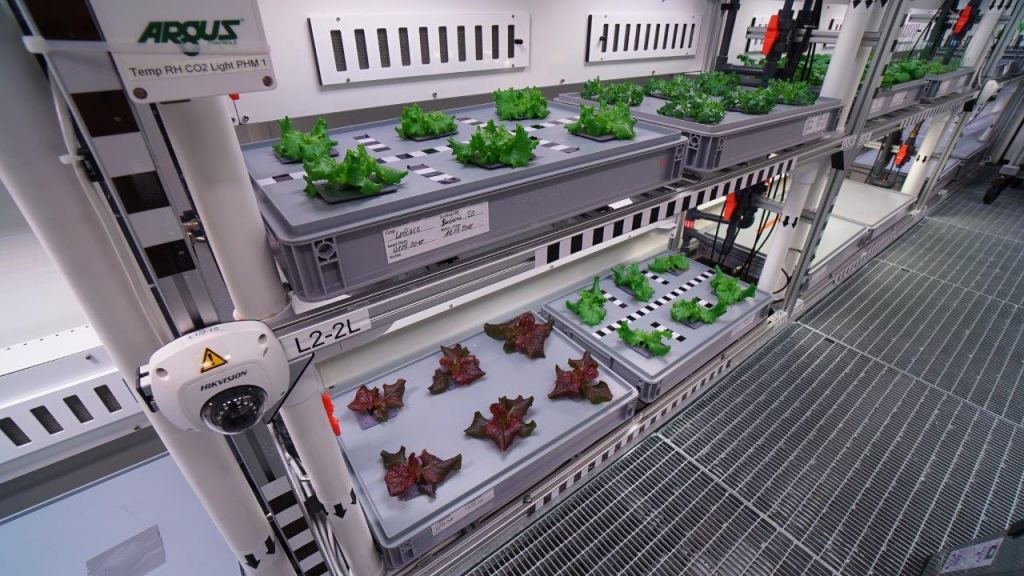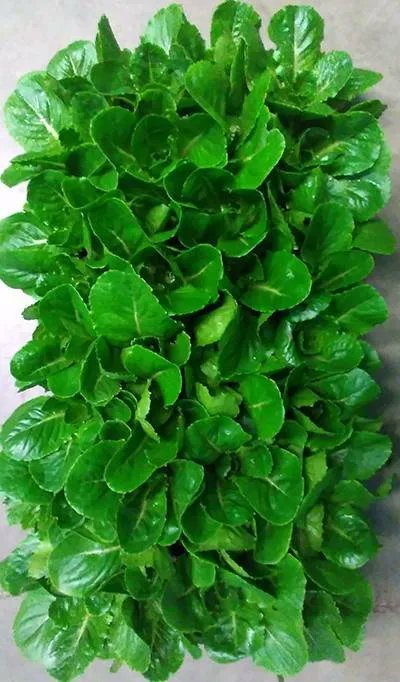Space Lettuce Could Reduce Astronaut Bone Loss
By Andy Tomaswick
All kinds of challenges will face the first humans to travel to Mars. One that has been much discussed, with no potential solution yet, is the potential for a significant amount of bone density loss on the three-year mission. Astronauts lose about 1% of their bone density per month in the microgravity of the ISS. That’s not too big of a deal if they are only on the station for six months, but the two 10-month space trips of a mission to the red planet could be a concern. Now a team of researchers think they have a solution – have the astronauts eat more salad.
Lettuce, which is commonly used as a basis for salads, isn’t particularly beneficial to bone density in its usual form. However, a peptide fragment called human parathyroid hormone (PTH) is. It can stimulate bone growth that could fight osteopenia, the bone density loss associated with low gravity environments. Typically, PTH is taken by injection, but that is likely not feasible on space missions – the serum and syringes required to provide the necessary amount of the medication would be prohibitively expensive to launch.
Luckily, injections aren’t the only way to receive pharmaceuticals. In some cases, they can simply be eaten. So far, no one has bothered to do that for PTH, but now Kevin Yates, a graduate student at UC Davis, and his colleagues have developed a transgenic form of lettuce that can express PTH. They presented their research at the annual meeting of the American Chemical Society in March.
Credit – American Chemical Society
To create this transgenic lettuce, the team turned to a standard technique to give a plant a specific gene – they infected it with a bacteria known as Agrobacterium tumefaciens. In preliminary studies, the bacteria seemed to do its job well, causing the lettuce to produce between 10-12 milligrams of PTH per kilogram. At the current level, each astronaut would have to eat about 8 cups of lettuce per day to get enough PTH to stave off bone loss, which Yates admitted was a “pretty big salad.”
But there’s room for improvement. An underlying assumption is that only 10% of the PTH that the plant produces will actually make its way into the human system, but that hasn’t been proven yet. So far, the researchers haven’t infested their modified crop themselves, as they are waiting on the outcome of animal studies to prove its safety. If other genetically modified crops are any indication, the lettuce should be safe to eat and taste similar to the traditional kind.
An advantage genetically modified crops have is that scientists can select strains with the highest rate of the characteristic they are searching for and continue to attempt to improve that best strain. Yates and his colleagues hope to do that with the lettuce they created, potentially boosting its output significantly.

Credit – TPU
Once they find a strain they are happy with, they will want to test it on the space station. This wouldn’t be the first time astronauts have grown lettuce on the ISS, but it is worth checking whether this modified strain suffers from any debilitating side effects in microgravity. Assuming that it doesn’t, it would be relatively simple and inexpensive to launch the tiny seeds, which could eventually grow into full-blown lettuce to produce the PTH.
But space isn’t the only place this form of lettuce might be helpful – there are areas on Earth that suffer from a lack of traditional medicine, and a lack of PTH could cause degenerative bone disease in those populations. Rather than attempting a massive and continual medication effort in these parts of the world, this new lettuce strain could reduce bone density loss in their populations.
Whether or not any of this will come to pass is still up in the air. NASA isn’t planning its first Mars mission until the 2030s, so there’s still plenty of time to work on perfecting the crop. And maybe the astronauts on that mission will get to enjoy a tasty, non-freeze dried leafy meal once a day. If it helps them stave off a debilitating bone condition, so much the better.
Learn More:
ACS – Space-grown lettuce could help astronauts avoid bone loss
Berliner et al – Space Bioprocess Engineering on the Horizon
UT – Space Station’s Veggies Are “Grow” to Launch
UT – Gardening for the Moon
Lead Image:
Image of the genetically modified lettuce that produced bone-stimulating hormones.
Credit – Kevin Yates
The post Space Lettuce Could Reduce Astronaut Bone Loss appeared first on Universe Today.

May 2, 2022 at 06:36AM
via Universe Today read more...

Post a Comment